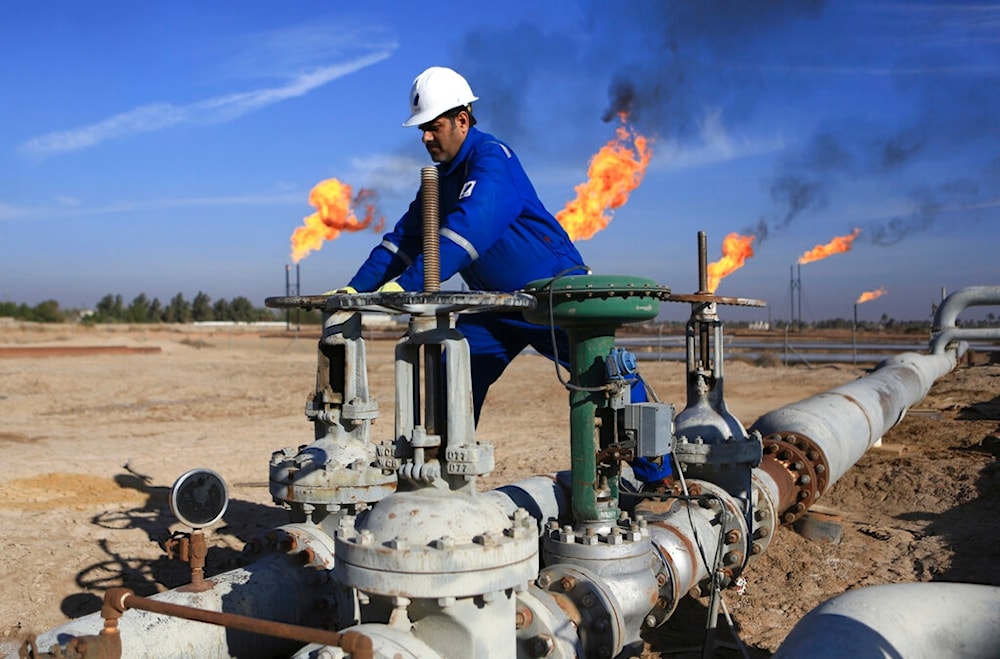Iraq-Turkey pipeline set to restart after two-year dispute
This development follows a near two-year halt in crude shipments from the Kurdistan region, which disputes between Baghdad and Erbil had disrupted.
-

An Iraqi worker operates valves in Nihran Bin Omar field north of Basra, 340 miles (550 kilometers) southeast of Baghdad, Iraq, Thursday, Jan. 12, 2017 (AP)
Iraq's oil ministry announced that preparations to restart oil exports via the Iraq-Turkey pipeline are complete. This development follows a near two-year halt in crude shipments from the Kurdistan region, which had been disrupted by disputes between Baghdad and Erbil. Improved relations between the central Iraqi government and the Kurdish regional administration have paved the way for resuming exports.
The suspension began in March 2023 when Turkey halted pipeline operations after an International Chamber of Commerce ruling required Ankara to pay $1.5 billion to Baghdad for unauthorized exports by the Kurdistan Regional Government (KRG) between 2014 and 2018. Recent amendments to Iraq's federal budget law, which set transport and production costs at $16 per barrel and require the KRG to transfer its oil output to the State Oil Marketing Organization (SOMO), have facilitated the resumption of exports.
This comes amid reports that the Trump administration is pressuring Iraq to restart Kurdish oil exports, allegedly threatening sanctions similar to those on Iran if Baghdad does not comply. Reuters reported that this pressure is part of Trump's renewed "maximum pressure" campaign against Tehran, aimed at cutting Iranian oil exports to zero to curb its nuclear ambitions. US officials argue that allowing Kurdish oil exports would help offset the loss of Iranian supply in global markets, stabilizing prices and maintaining energy security.
The US strategy also targets Kurdish oil smuggling to Iran, which has increased during the pipeline shutdown. Approximately 200,000 barrels per day of Kurdish crude are reportedly being trucked to Iran, generating significant revenue streams. Washington has urged Baghdad to redirect these exports through Turkey to limit Iran's economic gains.
However, Iraqi officials have denied any pressure or sanctions threat, insisting that the decision to resume exports is based on national interests. Despite Iraq's readiness, Turkey's Energy Minister Alparslan Bayraktar stated that Ankara is awaiting confirmation from Iraq before restarting the pipeline. The resumption is expected to stabilize regional oil markets and enhance Iraq's crude export capacity, potentially adding over 300,000 barrels per day to global markets and influencing global oil prices.
Read more: US seeking to consolidate, expand presence in Iraq: Sayyed Khamenei

 2 Min Read
2 Min Read










